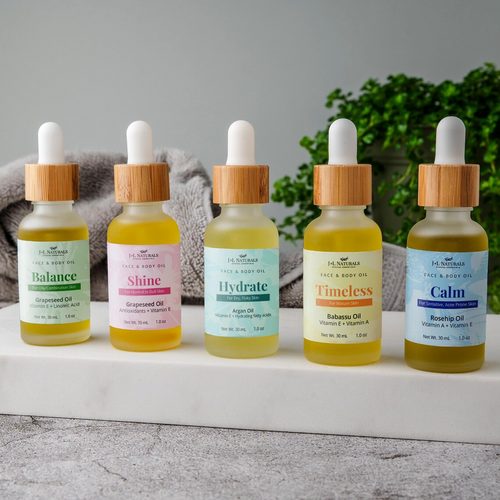Free US Shipping when you spend $35+
What to Expect when Switching Deodorants


One of the best things you could do for yourself is switching to a natural, aluminum free deodorant. But why? Your traditional store-bought deodorants contain Aluminium chlorohydrate and/or aluminium-zirconium tetrachlorohydrate gly which studies suggest a link to Breast Cancer and Alzheimer's Disease.
How Aluminum Based Antiperspirants Work

These harmful aluminum based chemicals react with the electrolytes in your sweat to form a gel plug in your sweat glands which does not allow your armpits to sweat naturally also preventing odor. Sweating is essential for your body's health as toxins are excreted through sweat, however, is your body is not able to sweat, all of these harmful toxins get trapped in your body and can build up.
Odor
Odor does not come directly from sweating, it happens due to bacteria on your skin breaking down proteins in your sweat into acids. Aluminum based deodorants do not actually protect against odor if it were to happen. 
Natural deodorants are typically more effective against odor because they use ingredients to neutralize odors as they happen while still allowing you to sweat naturally.
Transitioning
If you are trying to make a decision to switch to aluminum free deodorants there are some things you will want to know before switching about what to expect and how to avoid uncomfortable, itchy rashes.

First you will need to stop using your antiperspirant deodorant for a few days to allow the aluminum plugs in your sweat glands to clear out. I know this will not be ideal as you may have some BO for a few days but it will be worth it trust me. To mitigate the BO in this detox time, wash your armpits twice or even 3 times a day with soap and warm water to wash away the bacteria and sweat causing your BO. Once your armpits are fully detoxed and are sweating naturally you can use your natural deodorant.
How Natural Deodorants Work
Natural deodorants use various ingredients (usually baking soda) to neutralize odors as they happen to keep you smelling fresh all day.

There are also other ingredients such as arrowroot powder or diatomaceous earth that help absorb moisture as you sweat.
What to do if You Have an Armpit Rash
Don't Panic! Usually any rash that follows the prompt switch of deodorants is easy to get rid of. A lot of people call it a detox rash, however, a natural detox does not cause rashes or irritation. The rash I am talking about is a red, itchy, burning rash in or around your armpits. It is typically due to the new deodorant causing irritation due to your inability to sweat. Sweating is essential for natural deodorants to work properly. The baking soda is basic which is neutralized by your sweat (acidic) so irritation does not occur. This is why it is absolutely necessary to let your pits detox before starting a new aluminum free deodorant. Nonetheless if you do have a rash after switching deodorants, wash the deodorant off your pits and stop using any deodorant at all for a few days until the rash has resolved. Then you can try your deodorant again. If the rash comes back, stop using your new deodorant because you may be sensitive to some ingredients.

There are many deodorants on the market today and they target different things. Aluminum based deodorants clog your sweat glands which keep you dry and somewhat odor free but can have health consequences in the long run. Aluminum free deodorants react with your sweat to keep you smelling fresh all day long and help mitigate wetness. There are many products out there to prevent you from sweating through your clothes but the average person does not sweat through their clothes on a casual basis.
Sources
https://www.webmd.com/breast-cancer/features/antiperspirant-facts-safety#1
https://en.wikipedia.org/wiki/Deodorant
https://www.medicalnewstoday.com/articles/173478
Disclaimer: I am in no way a doctor or qualified to give medical advice. My advice is based off of my experiences and experiences of others and should only be used to make your own decisions as it is not medical advice.

